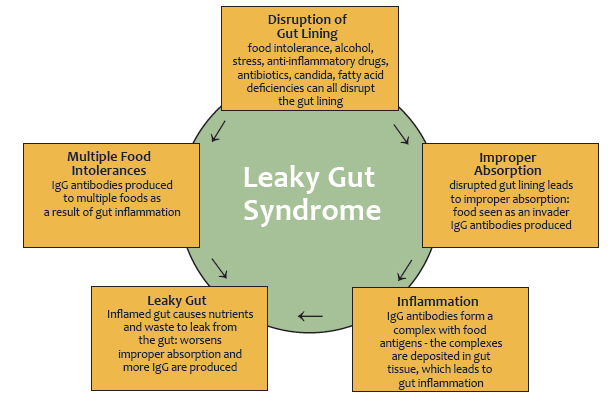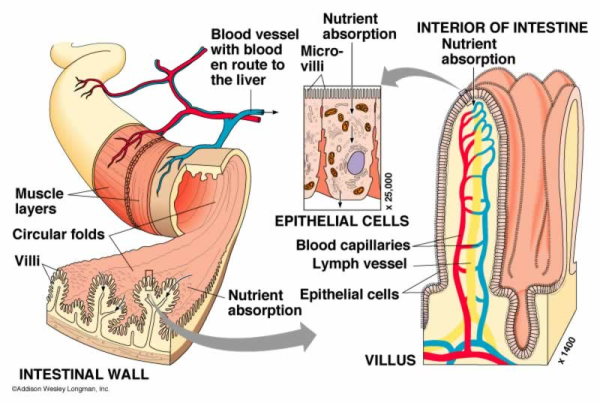Understanding Leaky Gut Syndrome
Leaky Gut Syndrome
Leaky gut syndrome is a term that is used to describe an abnormally hyperpermeable intestinal walls. This is a condition in which the intestines become more porous therefore leaking the undigested food particles into the blood stream. This creates very many holes that are allowing too much of undigested food particles into the bloodstream causing myriads of problems. Apart from undigested food particles toxins, yeast and other wastes find their way into the blood stream therefore overwhelming the liver which is supposed to be sieving all the unwanted content from the blood.
The biggest problem that is presented by this condition is that the intestine should function as the first sieve as it keeps the unwanted materials from getting into the blood stream but since holes have been created on the lining of the intestines everything finds their way in the blood stream and the body may react by inflaming.
Symptoms of Leaky Gut Syndrome
Food Sensitivities – food sensitivities has been closely linked to leaky gut syndrome. This sis because of the high toxins that are accumulated in the blood, this will force the body to produce very many antibodies which makes them more susceptible to some kind of foods.
Inflammatory Bowel Disease – Researchers from Hungary have recently uncovered that elevated gut permeability is often times localized to the colon in people suffering from irritable bowel syndrome and ulcerative colitis.
Thyroid Problems – leaky gut syndrome causes thyroid problems so if you are experiencing thyroid problems, the leaky gut syndrome may be the culprit.
Malabsorption – the leaky gut syndrome causes poor absorption of food, this is because it causes nutritional deficiencies especially of vitamins and minerals such as magnesium and vitamin B12 that help in digestion of food.

Causes of Leaky Gut Syndrome
Unhealthy diet- when you eat lots of processed foods, refined sugars and preservatives, they cause high chemical amounts in the body which are considered toxins. The body will begin to fight these toxins but since you are taking more and more of these toxins the system may be overwhelmed and this may cause inflammations. Accumulation of these toxins will cause corrosion on the intestinal walls causing the leaky gut syndrome.
Medications- some medication has Aspirin or Acetaminophen as part of their content. Aspirin and Acetaminophen irritate the intestinal lining and decrease the mucosal levels .this affects the protection offered by the mucus on the walls of the intestine. It may also encourage inflammation which increases permeability of the intestinal wall.
Lack of Zinc- Zinc is a vitamin that is good in maintaining the strength of intestinal walls. A deficiency of the vitamin can lead to the mucosal lining losing strength and becoming more permeable. There are studies that show that supplementing with Zinc when it is deficient can dramatically improve intestinal lining integrity. Therefore eating meals that are rich in zinc such as nuts may help prevent against leaky gut syndrome.
Yeast- too much yeast causes candida that may grow roots in the intestinal lining, this results in their tentacles making holes on the lining of the stomach creating entry for non-digested food into the blood stream.
Chronic Stress-Chronic stress almost always results in a suppressed immune system. A weakened immune system cannot handle doing it’s normal job and gets easily overwhelmed with pathogens very. This increases overall gut inflammation leading to increased permeability of the intestinal lining.
Inflammation-Any type of inflammation in the gut can lead to leaky gut. This can be brought on by low stomach acid. Low stomach acid passes undigested food into the small intestine which then causes myriads of digestive problems that may in turn cause the leaky gut syndrome.
Treatment for Leaky Gut Syndrome
Leaky gut syndrome is a mysterious condition that is up to now still not fully understood by the medical fraternity probably because it is not taught as a diagnosable disease. However it is a multifaceted condition that must be tackled by joining really several dots to form a line. Here are some of the approaches that can be used to treat this disease.
Watch what you eat- it is very important to keep away from foods that may lead to accumulation of toxins in your body. Foods that are over processed, high in sugar content should be avoided to alleviate inflammations that make the intestine lining more permeable. When you stop eating these kinds of foods the toxin levels will go down and the yeast will be starved and overgrowth stopped, this will enable the walls to repair and regain normal permeability.

Using nutritional supplements- leaky gut syndrome causes nutritional deficiencies therefore the body needs to be supplemented with these nutrients. Some nutrients like zinc are also important in strengthening the intestine lining and hence boost recovery.
Digestive Enzymes– eating foods that are rich in digestive enzymes can help you a great lot in fighting leaky gut syndrome. The digestive enzymes are naturally found in the foods that we eat the whole foods that are not over processed. Fruits and vegetables are rich in these digestive enzymes, they work in the intestines helping to break food into finnier particles before they are absorbed to the blood stream. They also remove toxins, bad bacteria and even worn out cells of the intestine lining creating a clean environmental for absorption of digested food particles.
Leaky gut syndrome is a complicated, debilitating condition. But you aren’t on your own: please contact Dr. Dalal Akoury (MD) on 843-213-1480 and tap into her wealth of knowledge and experience.
Understanding Leaky Gut Syndrome


















